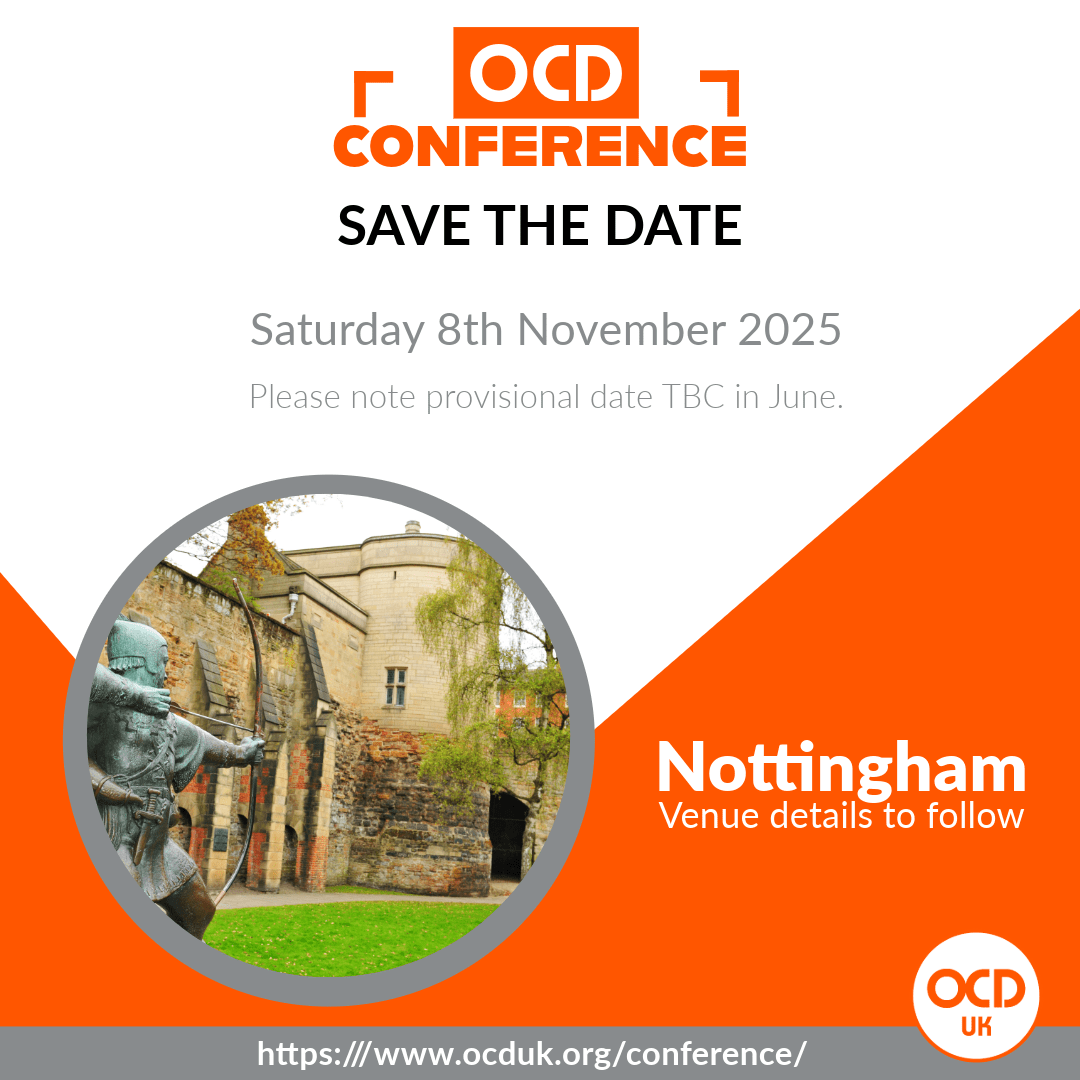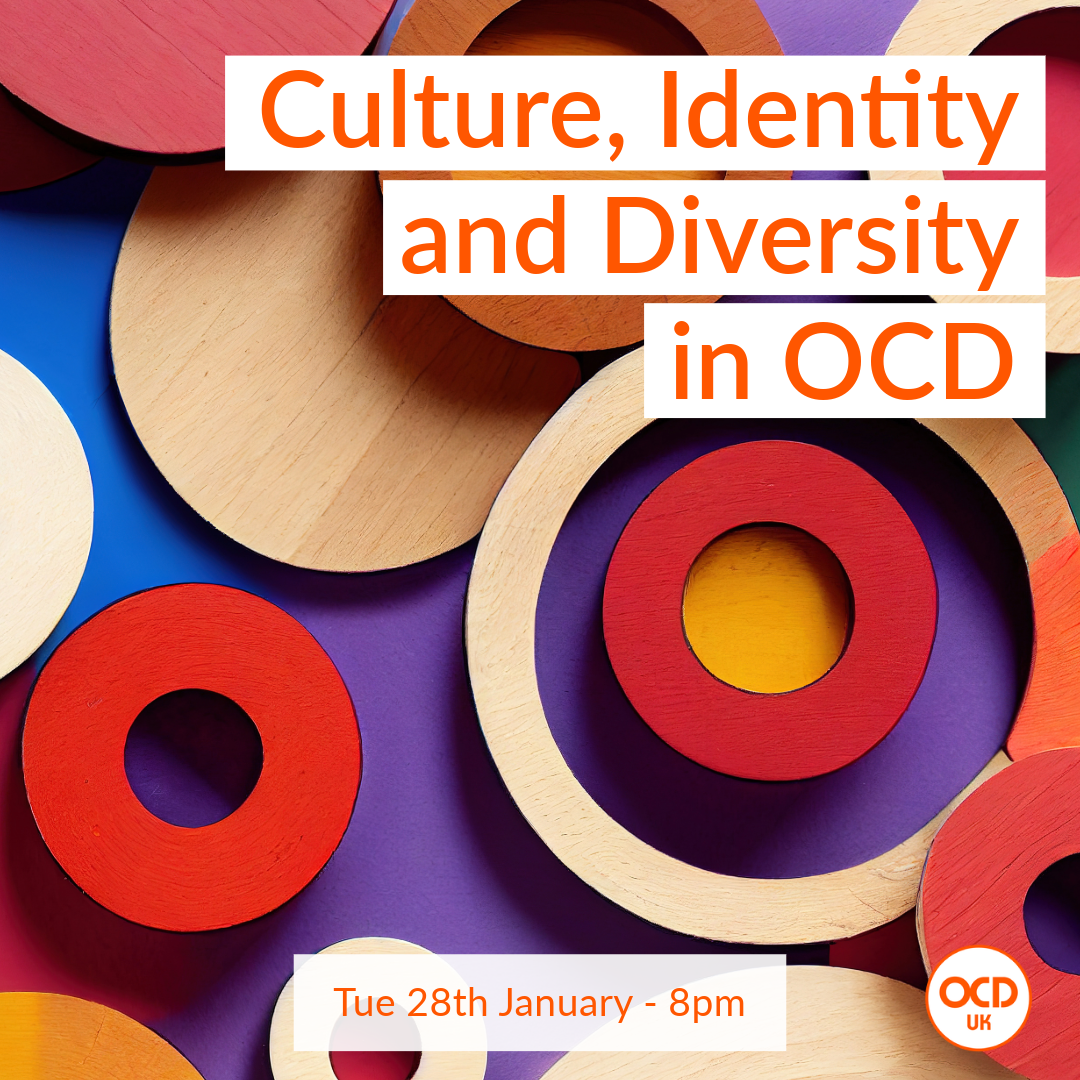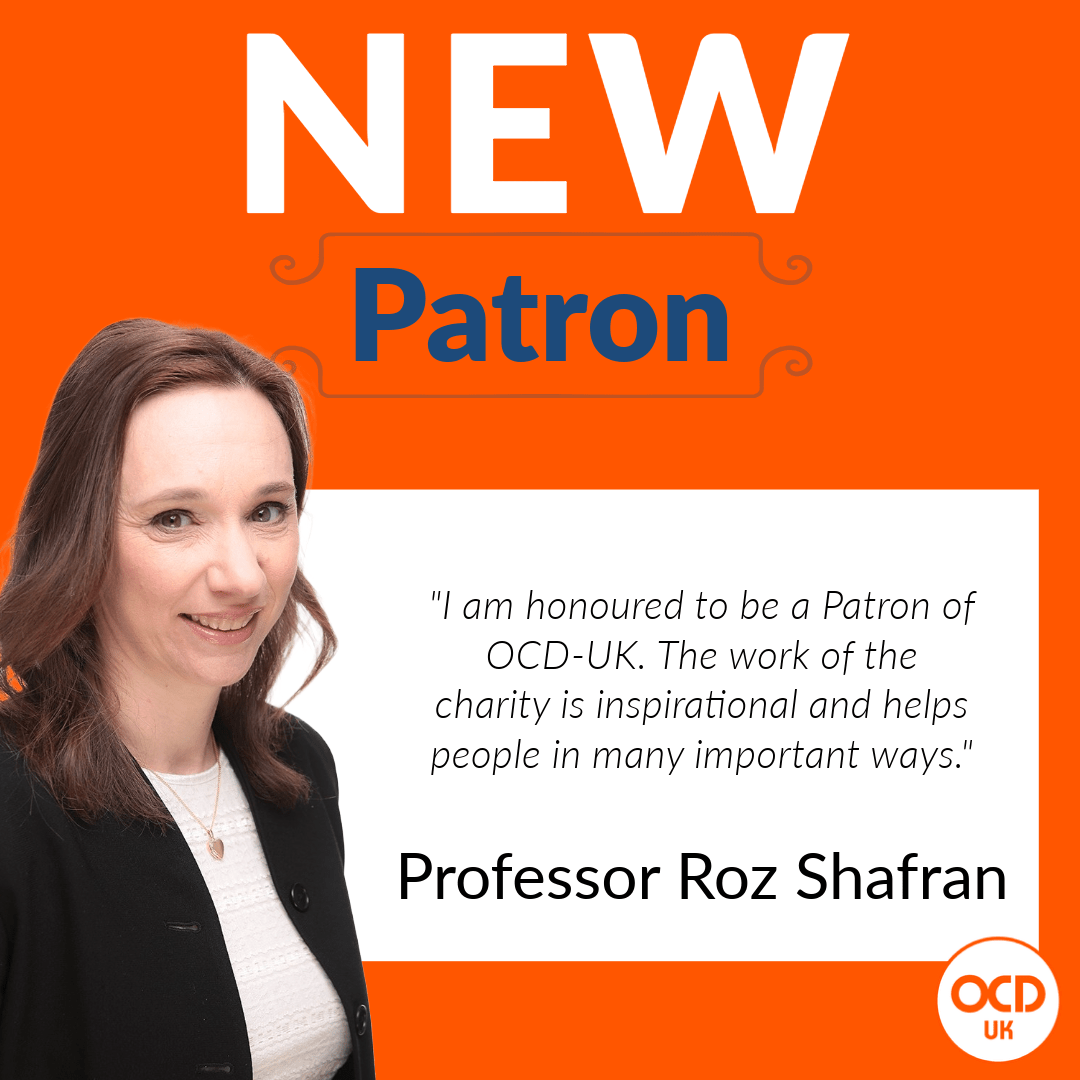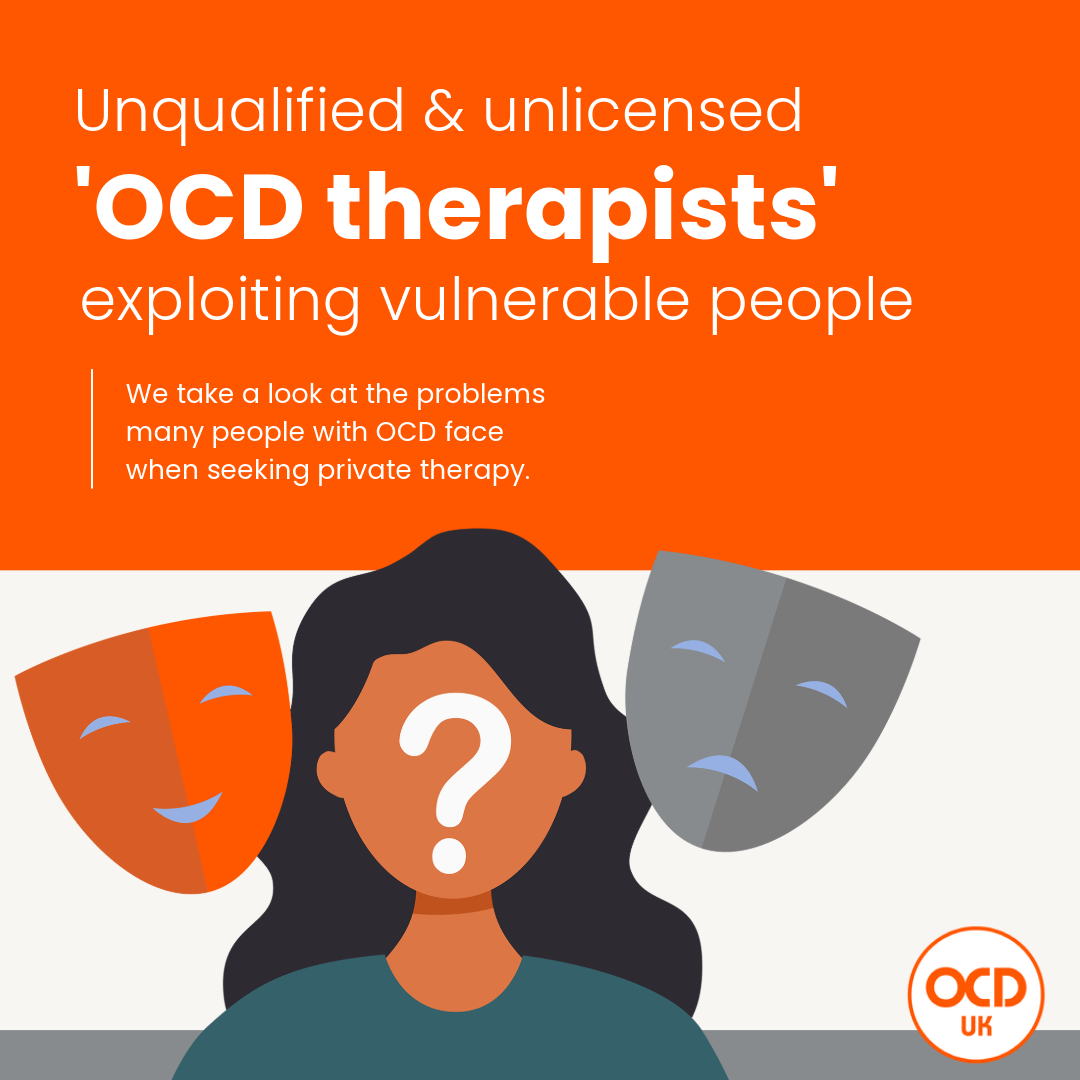OCD and Coronavirus (COVID-19)

Ashley Fulwood
Chief executive of OCD-UK and someone with lived experience of OCD.
As I lay there in the middle of the night, coughing to the point my chest felt like it was going to explode until I literally vomited my guts up for the 5th or 6th consecutive night, my mind started to explore the possibility, what if I actually had coronavirus. “Don’t be silly Fulwood” I thought, how could you have possibly caught coronavirus, which at that time was predominantly an overseas problem.
But when you suffer with Obsessive-Compulsive Disorder (OCD) the mind is already racing and boom within seconds it found a way, that international celebratory dinner at the University of Oxford you attended two weeks ago, “that’s how you have coronavirus Ashley”.
Thankfully these days I can quickly put OCD back in its box with logic or simply by daring OCD to do its worst. I realised that my gut-wrenching symptoms were not the same as coronavirus and that I was predominantly only ill at night when lying down. That meant the self-imposed isolation I had given myself for a few hours that day was unnecessary.
However, for many with health anxiety or Obsessive-Compulsive Disorder when something like this latches on, it’s hard to shake it off again. Sadly, history shows us that with every new pandemic there are unwanted intrusive thoughts that for a few morph into full blow Obsessive-Compulsive Disorder.
And guess what, this time is no different. During the last couple of weeks, we have started to see an increasing number of emails and calls about OCD and coronavirus (or to give it the official name, COVID-19).
It’s actually not unique to OCD to feel anxiety about a possible pandemic.
It’s actually not unique to OCD to feel anxiety about a possible pandemic. But of course, for those of us with existing anxiety, in particular around fears of contamination, our response to such a health crisis can be extreme.
But extreme problems are just that, problems, and there are always solutions to every problem.
During such global health issues, the advice from health professionals is usually (and rightly) to be careful not to touch our nose and mouth and regularly wash our hands to the tune of 'Happy Birthday' twice (around 20 seconds). All sound medical advice, but to OCD, particularly for those who have fears around contamination, this becomes open house to every unwanted intrusive thought OCD can throw at us.
The problem is the media all too frequently overemphasise the risks, resulting in many people with OCD having an increase in obsessions to the point their OCD severely impacts on their ability to function. With that comes an upsurge in calls and emails to OCD-UK from people suffering with OCD and a fixation on the new virus, which always seems scarier than previous flu epidemics.
You know what OCD is like, today’s problem will be replaced by a new problem tomorrow, and today’s problem won’t be that significant tomorrow. But today that OCD worry is all you can focus on.
The latest coronavirus has sparked an obsession with germs – for many of our callers this is OCD rehashed in a new coronavirus shaped fear, but I have no doubt that the current emphasis to avoid shaking hands and repeated hand washing will lay seedlings for people yet to know the pain and misery of Obsessive-Compulsive Disorder.
As we have seen across the news, many people, even those without OCD or health anxiety worries, have resorted to wearing paper face masks on public transport (which allegedly offer negligible benefits). That’s a fear driven compulsion, but for now, at least, most likely won’t be at obsessive levels.
But for those of us with OCD, we take things to a new level.
You’re not alone
OCD makes us feel not only that it is incredibly likely we will contract this new virus but worse still, that we must take every precaution so not to pass it on to our loved ones. This inflated sense of risk and responsibility weighs us down with guilt for being potentially culpable for spreading this virus, and those intense feelings of guilt leads to significant behaviours beyond the norm for those not affected by OCD.
A key difference for those of us with anxiety problems compared to those without, is that we are unable to feel reassured by practical government advice or loved ones.
We start to avoid public places like shopping centres, we go to the supermarket late at night, avoid seeing other parents at the school gates, avoid physical contact with friends and loved ones and start to wash our hands much more frequently and for longer than the recommended advice.
This list goes on, we start researching the latest developments online, contacting NHS 111 at the first sign of a sniffle... all of which is understandable, because OCD is magnifying the severity of the problem.
Those fears most likely will be projected on to loved ones too, wanting them to avoid public places, wanting them to wash their hands more frequently, etc.
All of which is excruciatingly mentally and physically draining.
So what can we do?
Your only focus is on the latest government advice to wash your hands frequently.
Right now I suspect for many of you, your only focus is on the latest government advice to wash your hands frequently… and OCD is absolutely having a field day with that, yes?
The government advice is fairly sensible and measured, and we, as OCD sufferers with contamination fears, can still follow it without letting OCD adapt it to its own level of extremeness. If you’re currently undergoing therapy for contamination fears, the therapeutic advice may be to not wash your hands at all for a few days (before coronavirus). In the short term however, you may need to follow the sensible and measured government advice to wash your hands as recommended. Your immediate challenge will be to not allow your hand washing to become excessive, and if you can manage that, then you will have actually successfully completed a therapeutic behavioural exercise. Keep it to the levels recommended, no more.
When the immediate danger from Coronavirus passes us by in a few weeks time, then you ramp up the therapy as originally planned to not washing your hands as guided by your therapist.
With OCD the avoidance and compulsive behaviour is driven by the fears and worries that bombard our everyday thoughts, which of course for many of us will have intensified these last few days.
The most important thing right now is that you look after both your physical health AND your mental health. So, here is a summary of how to cope in these challenging times without making your OCD worse.
OCD and Coronavirus Coping Summary
Giving OCD nowhere to go
In many respects OCD is about worrying about something that might be a problem, because it’s got potential to be a problem. In an ideal world we will tell ourselves we will worry about it when it DOES become a problem and not a moment before.
In my experience allowing OCD some ‘wiggle’ room, such as I ‘might’ be contaminated from that toilet simply allows OCD to thrive on the uncertainty because of the word ‘might’. But if I tell myself ‘I am contaminated and I will get sick', whilst not a pleasant thought, it actually doesn’t give my OCD much wiggle room, because I have already acknowledged the worst case scenario and carried on with my activity/day despite it.
This takes practice, but these subtle changes do help change our focus and can even make OCD lose the power to scare and worry us.
Don’t Inflate the Risk (This paragraph updated 21st March.)
The media are doing their best to scare us, don’t let them or your OCD inflate the risk. Like with most of our OCD fears, regardless of what they are, there is a risk, relatively small, but OCD will inflate that to make it seem significantly higher than it actually is.
At the risk of providing reassurance, let’s look at the stats. Every single flu season, tens of thousands of people die globally every year. Public Health England told ITV News: "The average number of deaths in England for the last five seasons, 2014 to 2019, was 17,000 deaths annually''.
But so far, as of 09:00 GMT on Monday 20th March, the Department of Health said a total of 66,976 people had been tested in the UK for coronavirus, of which 62,993 were negative.
Globally, around 284,534 people have been infected (from a population of 7.7 billion) and it’s believed that thousands of people with coronavirus had such mild symptoms that those cases are not reported. In China, where the outbreak originated, they are now reporting zero new domestic cases and life is returning to normal.
Coronavirus is unpleasant and does pose a risk to the elderly and those with underlying health problems, but for the vast majority that develop the condition, they will experience mild to moderate illness, the symptoms not much worse than winter flu. But of course we understand that for many with OCD their obsessions become about protecting older family members.
In summary, right now winter flu is far more common and kills far more people every year, and whilst coronavirus is a significant cause for concern globally, the risk is still low for the majority and we should try not to allow our OCD to inflate that fact.
Doing CBT doesn’t mean not washing your hands
If we have specific contamination fears, part of our therapy may be to not wash our hands or shower as mentioned previously. Short term you may need to follow the sensible and measured government advice to wash your hands occasionally. But if you follow government advice to wash your hands at the appropriate level (seek advice from a family member on what is considered normal), then you’re still winning at your therapy!
CBT is hard, but living with OCD is much harder!
Washing your hands to the level of advice, rather than at the level OCD is demanding may not feel sufficient, but that’s CBT right there, you’re choosing not to do behaviour because of OCD and you’re choosing to ride out the anxiety! You’ve got this, CBT is hard, but living with OCD is much harder!
If you’ve had CBT before then the skills and techniques you learned previously can be implemented if you’re fears around coronavirus are spiralling. So, dig out your previous therapy notes and recordings, and refresh your memory about how you challenged other manifestations of OCD. The same basic principles will apply here.
Relaxation is important too, whatever works to help relieve your stress and reduce your anxiety is important to implement, be that exercise, meditation or something else. It’s still important to continue with that in times like this, and don’t wait for your intrusive thoughts to go before you engage in those activities.
Don’t wait for intrusive thoughts to disappear before getting on with life
If we allow our OCD to dictate and we wait until our unwanted thoughts are gone, we will never do anything. This is vital to remember with OCD, it was relevant last year and remains relevant this week.
Don’t wait for intrusive thoughts to go before focussing on the things you want to do. If you let it, OCD will stop you doing everything you care about and want to do in life, most significantly in building and developing relationship with friends and loves ones.
Because of OCD, right now we may be avoiding seeing family and friends, avoiding hugs, avoiding doing and going to the places we enjoy. It’s important not to let OCD and the coronavirus limit our social circle, because that social circle is also your support circle!
Chances are your friends without OCD, may also be having a bad day (about anything), they may also be sharing some of the concerns you are, so focussing on them and their problems can sometimes be helpful in allowing us to focus away from our own problems and sometimes gives us perspective on our own concerns.
Summary
Coronavirus is a problem and a significant problem globally, and I cannot guarantee you will never, ever get it! But I assume you’re reading this because you already have Obsessive-Compulsive Disorder and that is impacting on your life.
So instead of implementing excessive strategies to prevent contracting coronavirus, start implementing practical short and long-term strategies to challenge your OCD.
That may involve engaging in techniques previously learned in CBT, or if you’re new to OCD then start by seeking access to therapeutic treatment for OCD and in the meantime pick up a self-help book like the excellent ‘Break free from OCD’.
Remember, right now OCD is your main problem, and OCD recovery is possible!
Wishing you good mental health.
Ashley Fulwood
Chief executive of OCD-UK and someone with lived experience of OCD.
Medical Disclaimer: This content is provided for informational purposes only and is not intended as medical or therapeutic advice. As health professional guidance around coronavirus and OCD changes we reserve the right to change the advice within this article accordingly. If in doubt please consult your own therapist or NHS 111.























